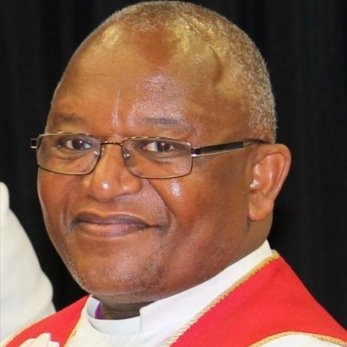Banner
SA Methodist Church formally adopts BDS
The Methodist Church of Southern Africa (MCSA) formally adopted Boycott, Divestment, Sanctions (BDS) principles against Israel at its annual conference in September 2019, closely following the Anglican Church of South Africa’s decision to do so in September.

TALI FEINBERG
The Methodist Church has more than 66 000 members across southern Africa and 40 million followers globally, while the Anglican Church has about three million members across southern Africa and 80 million followers around the world.
“It’s no coincidence that the Methodist resolution comes so soon after the Anglican Church’s recent synod resolution. Taken together, they are clearly evidence of a BDS campaign to infiltrate churches and use them as pawns in its anti-Semitic political campaign to undermine Israel through a deliberate campaign of distortion and misinformation,” says Chief Rabbi Dr Warren Goldstein.
“The Methodist Church’s stance on this is immoral. The church has been brought into disrepute by supporting BDS, which is acknowledged globally as an anti-Semitic organisation. It’s disgraceful behaviour.”
MCSA’s formal statement directs its members to “boycott, disinvest, and sanction all businesses that benefit the Israeli economy; that all future holy land tours organised by Methodist clergy or persons affiliated to the MCSA [are] to boycott all Israeli operators and tours and deliberately seek out tours that offer an alternative Palestinian perspective”.
The South African Friends of Israel (SAFI), which engages with thousands of Christian supporters of the Jewish State, also condemned the move, calling it an “unholy resolution of hate against the Jewish state of Israel”.
Says SAFI National Chairperson Rowan Polovin: “It appears that the MCSA has been wilfully blinded by the medieval doctrine of ‘replacement theology’. This anti-Semitic doctrine attempts to deny the Jewish covenant with G-d and the Jewish people’s unbreakable connection with the Bible.
“The modern manifestation of replacement theology is to use the weapons of BDS against Israel in the knowledge that this could undermine the Jewish state and speed up the manifestation of this theology. Those who engage in such nefarious antics, however, ought to re-read the Bible, particularly Genesis 12:3, which warns against cursing the Jewish nation. We call upon all Methodist Church members who wish to see genuine peace in the Middle East to voice their opposition to this resolution which has politicised the church,” says Polovin.
“It is important to note that there is consternation and disagreement within the churches (both Anglican and Methodist) on this BDS resolution,” he says. “We are engaging both churches at all levels and there is likely to be pushback from church leaders and members on this issue.”
The Methodist statement goes on to say that the decision to support BDS was made after “noting Israel’s ongoing ill-treatment and oppression of the Palestinian people; the historic prophetic role played by the church and international community in fighting apartheid and any form of discrimination and injustice; and as an act of solidarity with the people of Palestine”.
When the Anglican Church also formally adopted BDS some weeks ago, the chief rabbi said it was “morally offensive and based on a complete distortion of history”. He said BDS had been declared anti-Semitic by the United Nations, and therefore support for BDS is anti-Semitic in terms of international law.
The official leadership of the South African Muslim community welcomed the move, saying it “extends its heartfelt gratitude and appreciation to the churches…”
A member of the interfaith movement in South Africa, who spoke on condition of anonymity, said the MCSA’s adoption of BDS came as no surprise as some of its leaders have been outspokenly anti-Israel and have hosted pro-Palestinian events at their churches.
However, on social media, some Christian South Africans expressed their disappointment. Kevin M Joubert wrote on the MCSA Facebook page, “Disgusted in my church for supporting the terrorist-aligned BDS movement.”
“The Methodist and Anglican Church then can boycott the Bible too because the Bible was made in Israel too. Let them keep their BDS while we keep our Bible with all its prophesy about Israel, yesterday, now, and in the future,” wrote Tumelo Thom.
Pierre De Jager agreed, “The Bible is our highest authority and not the politics in the so-called churches. The Bible commands us to stand with Israel. The Israel-haters in the church brought the curse of G-d on our country, and we can see it every day.”
A member of the Anglican Church and a respected policy fellow at the Institute for Race Relations, John Kane-Berman, wrote on politicsweb.co.za that he rejected his church’s embracing of the global BDS movement, “which is dedicated to the stigmatisation, isolation, and ultimate destruction of the state of Israel”.
“To this end, it has embarked on a campaign to capture governments, international agencies, newspapers, non-governmental organisations, and academic institutions around the world,” Kane-Berman wrote. “One thing is certain, the BDS campaign, whether or not endorsed by the Anglican Communion, will not bring peace between Palestinians and Israelis.”